KAIWEETS Digital Multimeter TRMS 6000 Counts Voltmeter Auto-Ranging Fast Accurately Measures Voltage Current Amp Resistance Diodes Continuity Duty-Cycle Capacitance Temperature for Automotive


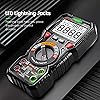
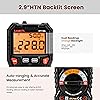
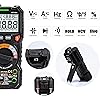

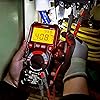
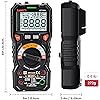
Buy Now, Pay Later
- – 4-month term
- – No impact on credit
- – Instant approval decision
- – Secure and straightforward checkout
Ready to go? Add this product to your cart and select a plan during checkout.
Payment plans are offered through our trusted finance partners Klarna, Affirm, Afterpay, Apple Pay, and PayTomorrow. No-credit-needed leasing options through Acima may also be available at checkout.
Learn more about financing & leasing here.
Selected Option
Returnable until Jan 31, 2025
To qualify for a full refund, items must be returned in their original, unused condition. If an item is returned in a used, damaged, or materially different state, you may be granted a partial refund.
To initiate a return, please visit our Returns Center.
View our full returns policy here.
Recently Viewed
Size: 6000 counts
Features
- WIDE APPLICATIONS: KAIWEETS HT118A Multimeter measures up to 600V AC/DC voltage, 10A AC/DC current and 60 MOhms resistance, electrical tester also tests temperature, capacitance, frequency, duty-cycle, wire on-off, and test diodes and continuity
- EASY OPERATION: Switch the dial to the function you need, and the LED lights on the jacks will shine accordingly. To plug in the leads is easy. Autoranging saves you the hassle of having to know which range of value. Large 2.9 LCD backlight display, easy-to-read digits offer a 6000-count resolution
- MULTI-FUNCTION: Non-contact voltage testing and Live function with sound and light alarm. Flashlight on the back ensures easy use in dimly lit places. Min/Max/Average to record signal fluctuations. Stable kickstand, Pen slot on the back, Low battery prompt, Data retention, Auto power-off
- SAFETY FIRST: IEC Rated CAT III 1000V, CAT IV 600V, CE, RoHS certified. Anti-Burn with double ceramic fuse and thermistor protection circuit. High Voltage Protection is active on all ranges. Double insulated unit. Silicone protective case prevents it from falling damage
- AFTERSALES: KAIWEETS provides a 36-Month after-sale service, lifetime technical support. Please feel free to contact us if you have any concerns. Package includes multimeter, test leads, thermocouple, batteries and user manual. ( Note: Please take off the cap before using the leads)
Description
KAIWEETS HT118A Multimeter measures up to 600V AC/DC voltage, 10A AC/DC current and 60 MOhms resistance, electrical tester also tests temperature, capacitance, frequency, duty-cycle, wire on-off, and test diodes and continuity.
Brand: KAIWEETS
Power Source: Battery Powered
Style: 6000 Counts Multimeter
Item Weight: 272 Grams
Item dimensions L x W x H: 8.03 x 5.12 x 2.44 inches
Product Dimensions : 8.03 x 5.12 x 2.44 inches; 9.59 ounces
Item model number : HT118A
Batteries : 2 AA batteries required. (included)
Date First Available : June 1, 2019
Manufacturer : KAIWEETS
Best Sellers Rank: #1,489 in Automotive (See Top 100 in Automotive) #1 in Multimeters & Analyzers
#1 in Multimeters & Analyzers:
Customer Reviews: 4.6 4.6 out of 5 stars 22,174 ratings
Frequently asked questions
To initiate a return, please visit our Returns Center.
View our full returns policy here.
- Klarna Financing
- Affirm Pay in 4
- Affirm Financing
- Afterpay Financing
- PayTomorrow Financing
- Financing through Apple Pay
Learn more about financing & leasing here.
Similar Products
Top Amazon Reviews








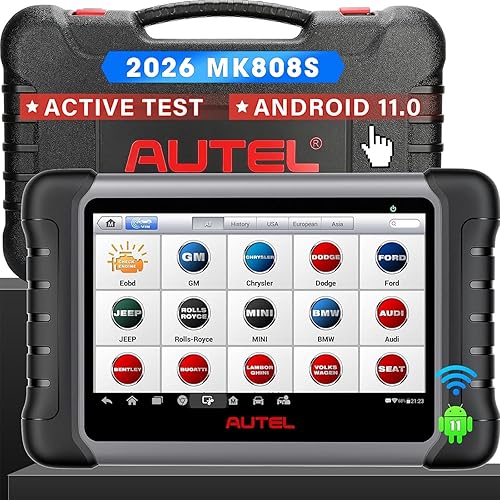










![Autel MaxiSYS Ultra Scanner, 2026 MSUltra Top Intelligent Scan Tool, Motor TruSpeed, Topology 2.0, [$2000] 5in1 VCMI J2534 Built-in, Up of MS919 MS909 Ultra Lite, 40+ Services 3000+ Tests 12/ 256GB](https://m.media-amazon.com/images/I/81HLDX84sSL._AC_US500_.jpg)



